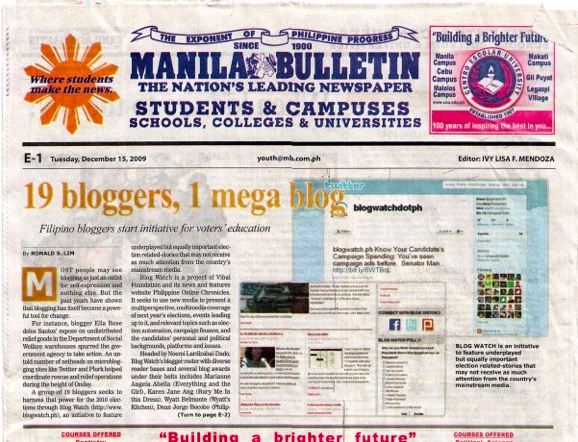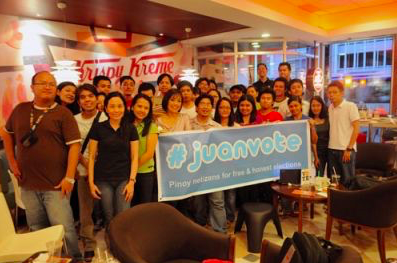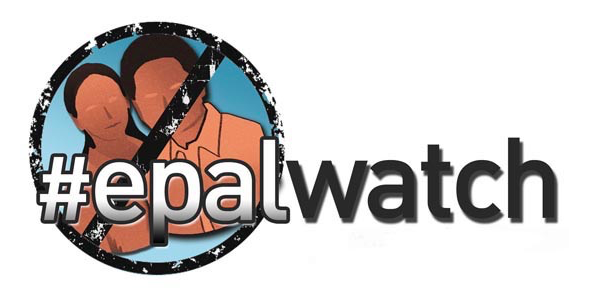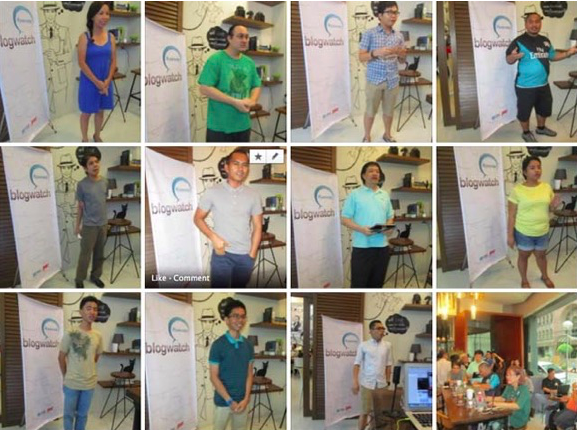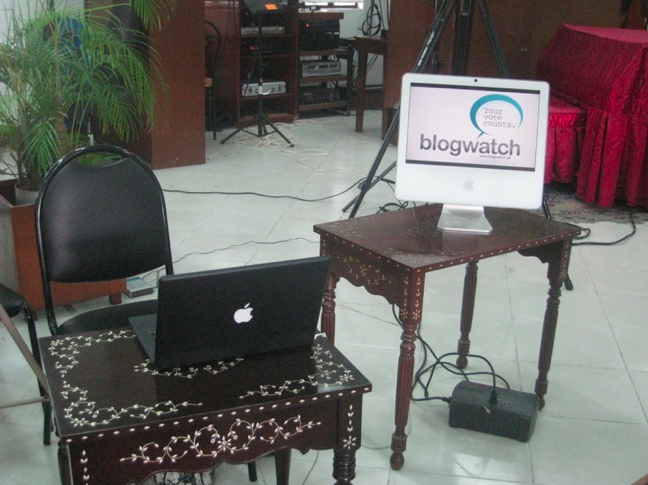BlogWatch: A microcosm of the evolution of citizen engagement in the Philippines
On Nov. 24, 2009, a small group of bloggers launched what they thought would be a 6-month foray into voters education. Looking ahead to the 2010 elections, they just wanted to do their share for the country by using their respective online networks to spread information that would be helpful for voters. Little did they know that what they began that day would be a spark that would join the growing flame today that is now referred to as CITIZEN ADVOCACY.
(SEE ALSO: Disclaimer)
BlogWatch was conceived, and the focus was inspired, from a PCIJ training– underplayed stories, commentaries, platforms, issues, campaign finance, automated elections, and voters education. Here is BlogWatch’s story as told by two of its co-founders, Noemi Lardizabal-Dado and Jane Uymatiao.
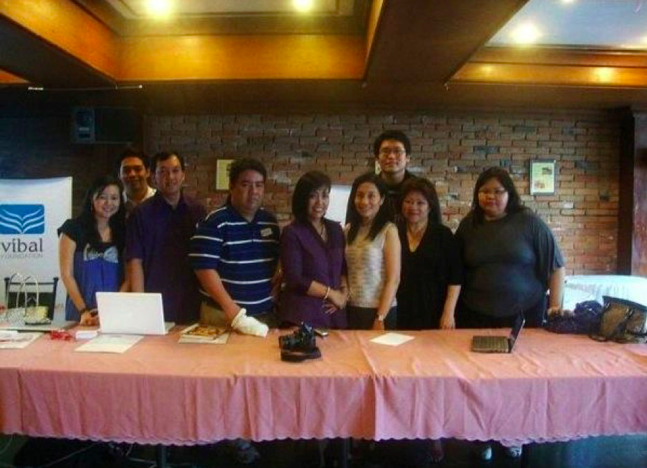
Photo courtesy of the Philippine Online Chronicles
Noemi: (on BlogWatch’s humble beginnings)
A bloggers’ meetup with Mar Roxas in 2008 brought me to the realization that politicians will actually meet with bloggers as election nears. Sharing this meeting in my blog brought positive feedback. Mommies wanted to know what politicians had in store for our country. Will they work for the future of their childen?
The Philippine Center for Journalism (PCIJ) knew the importance of bloggers for the 2010 election. PCIJ invited me for a training seminar on “Covering Elections in the Era of Internet and Automation” on August 26, 2009. My dream story for Election 2010 was for bloggers to pool their resources and cover topics like youth vote, the effect of infomercials on voter’s decision, automation, and the role of technology in election. Fate was on my side when a chance meeting with Kristine Mandigma, Program director of Vibal Foundation heard of my training and invited me to start a citizens portal for the Philippine Online Chronicles (POC) .
Jane: (on the first BlogWatch meeting and how it got its name)
Frankly, politics was never my cup of tea. I heard so many stories about how dirty it was so I always shied away from anything related to it. The closest I got to anything involving citizen participation was when I joined NAMFREL in the 80s and worked with Operation Quick Count during the 1984 elections and the 1986 snap elections.
I was happy as a blogger writing about parenting, tech and lifestyle when Noemi talked to me one day in 2009 to ask if I wanted to do voters education to take advantage of our readership network. I was initially hesitant but after thinking about it again, I thought there would be no harm in voters education for a few months. Noemi was able to rally other blogger friends to join too. Mind you, most of us were just food, travel, mommy and tech bloggers. We met up in October 2009 over an informal dinner. Someone said maybe we should give ourselves a different name other than how we were separately known online. Noemi said she wanted the word ‘Blog’ in the name since we were all bloggers. I contributed the word ‘Watch’ as an action word to describe what we were going to do. In the next few weeks, we did things related to elections like attending Comelec’s Bagong Botante event and meeting up with a few people who were planning to run in 2010. On Nov. 24, 2009, BlogWatch was formally announced to the press. At that time, we did not know it but BlogWatch would live up to the name we originally gave it — bloggers/netizens watching what is happening to the country.
Noemi: (on initial media and public reaction to Blog Watch and the birth of the #juanvote community)
(SEE ALSO: About BlogWatch and #juanvote)
In the PCIJ training, I learned that media coverage of past elections in the Philippines has often been criticized for its superficiality. Reporters often focus on personalities rather than issues and platforms. Politicians were also approaching bloggers. What if bloggers took control of the conversation? It was decided that BlogWatch would interview presidential candidates so we could scrutinize their platforms and vision for the country. Getting appointments with presidential candidates was a challenge at first. Using our own network of friends, we managed to invite seven out of the nine presidential candidates. It was important that we focused on in-depth discussion on platforms and issues that would normally not be discussed on television due to limited air time.
For the first time too, social media through #juanvote covered the first automated election through a collaboration with other netizens. The name #juanvote, coined by Tonyo Cruz, was used because the network calls on citizens to use hi-tech means to expose and hopefully thwart electoral fraud and violence.
Jane: (on the uphill struggle to gain credibility and discovering our real identity and purpose)
The media model for bringing news to the public, at the time that BlogWatch was started, was mainly via mainstream media – print, radio, TV. So when we began writing about voters education, interviewing electoral candidates, livestreaming and opening online video channels, it was like nothing anyone had ever seen in the Philippines. Media organizations asked us if we were “citizen journalists” or “citizen media”. In their minds we could not be anything else but ‘journalists’. Why else would we be doing something that they felt was within their scope of work?
But I knew deep down that I was NOT a citizen journalist. First, I did not have the educational background and journalistic training that journalists normally have. Second, my writing style was more commentary than fact reportage. Third, I knew that our real purpose for existence was not to just bring news to the public; that was for mainstream media to do. I knew we were ordinary citizens, enabled by technology and social media, with an online voice. We had the capacity to connect directly to the people who mattered and who could make changes. In a sense, social media was a direct path to companies and government officials without the bureaucratic red tape. Our online voice was how we could push for reforms, effect social change, achieve social good. It meant taking a stand, often fighting for a certain view on an issue, engaging with lawmakers, movers and shakers, and government agencies. And when you take a stand, you advocate. That was the word we had been looking for, our real identity — we were ‘citizen advocates’!
It was important to stay credible, present all sides of an issue as best we could and write responsibly. BlogWatch has writers with views that span left-, right-, and center-of-field perspectives. We also had to educate ourselves and read up on issues. Mainstream media was our source of information for news details while our strength remained in the use of social media over different platforms to amplify our stand. Over the years, we have also participated in different fora covering a variety of issues, attended more PCIJ training, covered press conferences alongside mainstream media to understand issues, and even co-organized events such as the 2014 Future of Media forum.
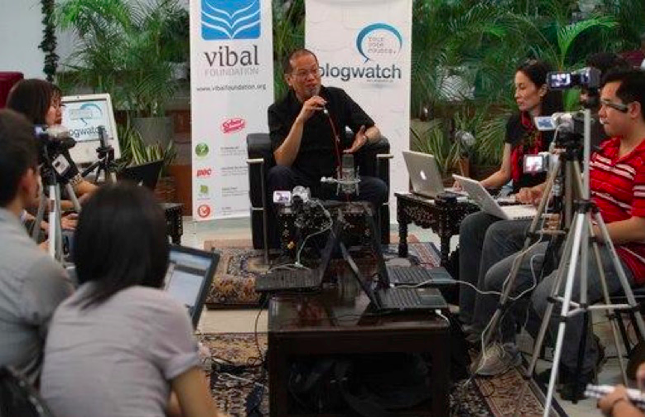
Photo courtesy of Philippine Online Chronicles
Noemi: (on why BlogWatch decided to continue and what issues it has been involved in)
Being hosted with the POC was a temporary arrangement . During our launch in November 24, 2009, we announced to the press that the BlogWatch project is only for the duration of the campaign. It was upon their suggestion that we decided to extend it to the 100 day honeymoon period . The duty of a citizen does not end on election day. BlogWatch shifted its focus towards citizen empowerment. Lessons learned from our social media engagement paved the way to empower the citizenry and widen the scope of our advocacy.
Anna Oposa and other advocates started the “Save the Philippine Seas” (#SavePHseas) right after the news broke out on the Plunder of our Philippine Marine Life in 2011. #SavePHseas aim to protect the country’s rich but threatened marine and coastal resources through information, education, and communication campaigns and community-based projects. Cocoy Dayao in 2010 strengthened the ProPinoy.net shortly after the elections. Sonnie Santos launched “Cyberwellness Asia” in 2010 to include responsible social computing, cyber wellness and cyber bullying prevention. In 2012, Pierre Galla and friends spearheaded the Magna Carta for Philippine Internet Freedom (#MCPIF) , an internet law bill filed in the Philippine legislature. Bloggers continue to write a wide range of topics in labor issues, human rights, education, children’s rights, maternal wellness, disaster risk reduction , internet freedom and good governance.

Jane: (on #epalwatch, #spamtextwatch)
In May of 2012, I was on Twitter and noticed people tweeting in disgust about epal posters and signages. I contacted Noemi and we felt that there was no central place where we could gather all such reports and really see how prevalent epalism (as people referred to it) was. We thought up the #epalwatch hashtag and announced it that same night on Twitter, telling netizens they could post epal photos they took and tag #epalwatch.
(SEE ALSO: About #epalwatch)
We did not expect the response. Neither did we expect the level of annoyance and anger people felt against epal public servants. One of the earliest submissions was from a person who had an epal photo on his phone for over a year already. If you visit epalwatch.tumblr.com, you will see the “creativity” of epal politicians based on the variety of epal gimmickry: photos on school certificates, backpacks, government vehicles, LGU business plates, government official receipts, and more.
Citizen empowerment was enabled by #epalwatch on Twitter and by another group, No More Epal, on Facebook. BlogWatch supported and collaborated with No More Epal, even joining its epal tour of Quezon City.
The result? Not only did epal activities take a nosedive but the vigilance and exposè resulted in two actions. Sen. Miriam Santiago filed an anti-epal bill (SB 54 or Anti-Signage of Public Works Bill). The Commission on Elections (COMELEC) also inserted anti-epal provisions in its Implementing Rules and Regulations covering RA 9006 (Fair Elections Act).
Aside from #epalwatch, we now maintain the hashtag #SpamTextWatch where netizens can post photos of spam text they receive. Telcos initially adopted a hands-off position, telling citizens to go directly to the National Telecommunications Commission (NTC) for spam-related complaints. But after netizens continued the pressure online on telcos, aided in my view by #SpamTextWatch, we saw things start to change. Globe, for one, filed a complaint against Caritas Health Shield which was one of the companies most reported for spam texts. In addition, telcos have now taken the initiative to put up websites where citizens can report spam texts.
Noemi: (on BlogWatch’s current partnerships/collaborative efforts)
Despite the limited funding and other challenges, BlogWatch is here to stay. From the collaboration and projects we initiated, it is obvious, like-minded individuals gravitate to each other and form communities and alliance.
While bloggers continue writing on underplayed stories and their respective advocacy, BlogWatch’s focus on citizen empowerment and disaster risk reduction will continue. Collaboration is taking place with Project Agos for our common goal to address climate change adaptation and disaster risk reduction. For citizen empowerment, we will continue to tap our #juanvote network and collaborate with the Computer Professionals’ Union (CPU) VoteReportPH project that utilizes Ushahidi Platform and Frontline SMS.
Jane: (on the future)
A challenge before BlogWatch now is going beyond the boundaries of cyberspace to reach out to offline citizens. We hope to expand our #juanvote community to the Visayas and Mindanao, get our volunteers off the net and on the ground. At the same time, it’s important to remain alert to new and upcoming social media platforms that expand our cyberspace reach and connect as well to those without internet connections.
It is very difficult to say exactly what and how future technology will enable netizens differently on social media compared to how it is today. But BlogWatch aims to remain as flexible as it was back in 2009, tweaking and adjusting as it goes. There’s one thing we know for sure: we are doing what we are doing to create the kind of government we have always dreamed of for our children – one that is transparent and operates with good governance; and by using social media, and empowering all citizens to use it as well, we hope to live to see that part of the vision for a government that goes — “of the people, by the people…”.
A shorter version of this article was published on Rappler, Blog Watch: How bloggers sparked online citizen advocacy on November 24, 2015.

